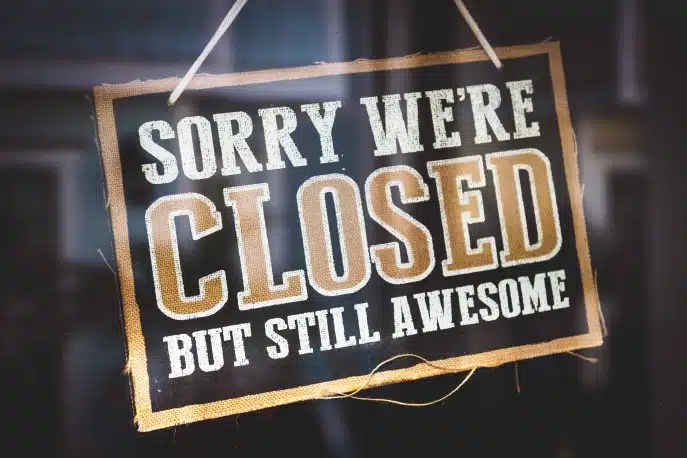How to Handle Unpaid Invoices from Clients Who Pay Late
Small businesses can only deal with so much when it comes to overdue or unpaid invoices owed by slow-paying clients. We examine how to best handle these clients and the financial struggle they cause.
How Late Payments Can Impact Your Business
The bitter reality is that large businesses tend to relegate small businesses to the bottom of the stack when it comes to paying invoices. If you own a small business you understand the negative impact this can have on your ability to run your business. This can cause trouble in making payroll, paying your rent and maintaining your vehicles and equipment. Unpaid and overdue invoices can keep you from growing your business. Overdue invoices can disrupt your business’s cash flow, making it difficult to cover operational expenses and manage day-to-day costs. The challenge lies in generating enough cash flow to keep the doors open. Here are a number of ways to help you handle the problem of late payments:
The Scope of the Problem
An Australian study conducted in 2015 examined 30,000 invoices generated out of 80 different countries. Out of a total of 19 countries participating in the survey, Australian companies fell last in terms of being paid on time. Invoices from Australian companies were being paid an average of 26.4 days late. The standard time for paying invoices is 30 days, which tells us that many Australian companies are waiting nearly two months to be paid.
Results of the Study
- Australian companies on average were getting their invoices paid 26.4 days late
- 90% of small businesses are forced to close their doors due to cash flow problems
- Small businesses in Australia have $26,000,000 owed to them in unpaid invoices
- The money tied up in outstanding invoices can severely impact a business’s ability to operate, making collecting payment essential for business stability.
- The costs associated with overdue invoices include not only lost revenue but also the time consuming process of debt collection and the potential need to hire a debt collection agency.
How Small Business Owners can Minimise the Problem of Late Payments
Here are some tried and true strategies that business owners can incorporate into their practices and procedures to minimise the frequency of late payments:
- Whenever you can, negotiate for a partial payment upfront of at least 50%. For example, a florist can set a policy whereby they are paid 50% of the cost of the arrangements when the order is placed, with final payment being made on delivery.
- Clearly outline your payment terms in all contracts and invoices, specifying due dates, accepted payment methods, and any late fee policies. This helps set expectations for your customer and reduces confusion about outstanding payments.
- From the very beginning, state clearly that you have a late payment fee schedule. Your terms could be an additional 3% penalty after 30 days, and 4% if the invoice is paid more than 60 days late. Make sure the late fee is included in your payment terms so customers are aware of the consequences of overdue payments.
- No matter how awkward it feels you must bring up your invoicing practices and late payment penalties upfront. This is especially important if you are freelancing and you are talking to a big multinational corporation. Be open about the terms ahead of time.
- Track the outstanding balance on each invoice and send payment reminders to customers to ensure timely follow-up and reduce the risk of overdue payments.
- Send friendly reminders and reminder emails to customers with overdue invoices, and make sure to craft a clear subject line in every invoice email to prompt immediate attention.
Establish Set Policies & Procedures for Overdue Payments
When you establish a system for handling late payments you have better luck getting paid. For example, you need to make a practice of acting promptly when an invoice is overdue, even for a day. The process should be automatic and with software like MYOB, Xero or Reckon, you can easily carry this out. Accounting software and invoicing software can automate sending invoices, payment reminders, and tracking outstanding invoices, making it easier to manage outstanding payments and outstanding invoices. The finance team can use accounting software to track accounts, payment dates, and send automated reminder emails to streamline the collections process.
Promptly sending invoices to your customers is essential to ensure timely payment and avoid overdue accounts.
If an invoice is overdue, act quickly by issuing a formal reminder or notice to the customer, and provide a clear point of contact for any payment queries or to discuss payment arrangements. Identifying past due invoices and overdue payments early, and contacting customers as soon as an invoice becomes past due, is crucial for effective collections.
How To Handle Clients who Repeatedly Pay Late
Stay on friendly terms while having a professional conversation with them upfront about how their late payments are adversely affecting your business. Go into detail how this can cause cash flow problems that could ultimately jeopardise your business. Finally, suggest that you sit down together to determine how things are going to work going forward.
Offering a payment plan can be a flexible option to help customers settle outstanding payments and reduce the risk of future overdue accounts. Providing a payment plan option can assist late paying customers and improve customer relationships by accommodating their needs.
If payment is not received after multiple reminders or payment reminders, you may need to escalate to legal action, such as involving a collections agency or pursuing a claim in small claims court, to recover the outstanding amount. Debt collection may become necessary, and debt collection agencies or debt collection services can be considered if standard efforts fail.
If the situation continues, more drastic measures such as legal actions or involving a debt collector or debt collection agency may be required as a last resort for collecting payment from customers who have paid late or refuse to pay. These legal actions can be time consuming and may involve additional costs, so they should only be used when all other options have been exhausted.
If you’re looking for some funds to tide you over between invoices Unsecured Finance Australia can help with a unsecured business loan, have a chat with our team today. For more insights and tips, check out our blog.
- Plan for the future by regularly reviewing your payment processes and using tools that help you get paid and help you get paid faster, such as automated reminders and invoicing software.
Additional Best Practices
- When setting payment terms, specify late fees and payment options in the original invoice to ensure clarity and encourage timely payments.
- When communicating with customers about overdue invoices, reference the original invoice and account information in all correspondence.
- Use an email template or past due invoice email to streamline the process of following up on outstanding invoices and ensure consistency in your communications.
- Always act in good faith when contacting customers about overdue invoices to maintain professionalism and fairness.
- Sending a friendly reminder or friendly reminders can prompt immediate attention to overdue accounts and help resolve payment issues before escalation.
- Monitor due invoices, outstanding invoices, and past due invoices to ensure timely follow-up and reduce the risk of unpaid accounts.
- When offering payment arrangements, provide flexible payment plans and payment plan options to accommodate customers’ needs and improve the likelihood of collecting payment.
- Even when escalating to drastic measures, such as legal actions or involving a debt collector, it is important to maintain a positive customer relationship whenever possible, as this can impact future business opportunities and your reputation for service.
Understanding the Issue
Unpaid invoices are a persistent challenge for businesses of all sizes, but especially for small businesses that rely on steady cash flow to operate smoothly. An unpaid invoice is any bill that remains unsettled past the agreed upon due date, creating a ripple effect that can disrupt your business’s financial stability. Overdue payments not only tie up your working capital but can also strain business relationships with customers, making it harder to maintain trust and ongoing partnerships. When invoices go unpaid, businesses may struggle to cover their own expenses, invest in growth, or even meet payroll obligations. Recognizing the impact of outstanding invoices and late payments is the first step toward developing strategies to ensure your business gets paid on time and maintains healthy cash flow.
Preventing Late Payments
Taking proactive steps to prevent late payments is essential for keeping your business’s cash flow healthy and reducing the risk of accumulating unpaid invoices. Start by setting clear payment terms from the outset, so your customers know exactly when payment is due and what is expected. Send invoices promptly after delivering goods or services, and consider offering incentives such as small discounts for early payments to encourage customers to pay ahead of the due date. For customers facing financial difficulties, providing a payment plan or accepting partial payments can help them meet their obligations without defaulting entirely. Leveraging accounting software to track invoices and automate payment reminders ensures that nothing slips through the cracks and that customers receive timely nudges to settle their accounts. By staying proactive and organized, businesses can minimize overdue invoices and maintain a steady flow of payments.
Credit and Risk Assessment
Before extending credit or agreeing to delayed payment terms, it’s wise for businesses to conduct credit checks and assess the risk of non payment. Evaluating a customer’s creditworthiness helps you determine whether to offer standard payment terms or require upfront payment or a deposit, especially for new or high-risk clients. By tailoring your payment terms based on the results of credit checks, you can reduce the likelihood of late payments and unpaid invoices. This approach allows you to protect your business from potential losses while still providing flexibility to reliable customers. Regularly reviewing your customers’ payment histories and adjusting your invoicing strategies accordingly can further safeguard your business against the risks associated with overdue payments.
Best Practices for Invoicing
Adopting best practices for invoicing is key to reducing unpaid invoices and improving your business’s cash flow. Make sure every invoice you send is clear and easy to understand, with a unique invoice number, the customer’s name and address, and a detailed description of the goods or services provided. Clearly state the payment deadline and outline your payment terms, so there’s no confusion about when payment is due. Send invoices as soon as possible after completing a job or delivering a product, and follow up with payment reminders if the due date passes without payment. Consistent, professional invoicing not only helps you get paid faster but also strengthens your business relationships by demonstrating reliability and transparency.
Invoicing and Payment Tracking
Efficient invoicing and payment tracking are essential for managing unpaid invoices and maintaining a healthy cash flow. By using accounting software, businesses can easily monitor which invoices have been paid, which are outstanding, and which are overdue. Automated payment reminders can be scheduled to prompt customers before and after the payment deadline, reducing the time and effort spent chasing outstanding invoices. Tracking payment patterns also allows you to identify customers who frequently pay late, so you can adjust your payment terms or follow-up strategies as needed. With robust invoicing and payment tracking systems in place, businesses can reduce the financial burden of unpaid invoices, improve customer relationships, and make informed decisions to support future growth.




